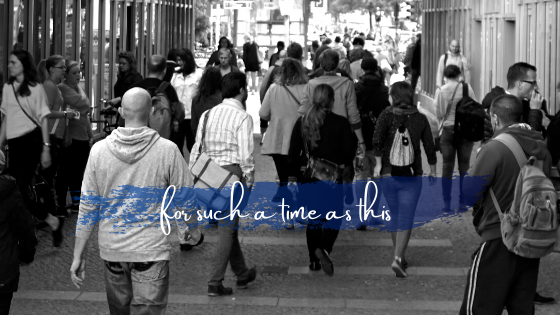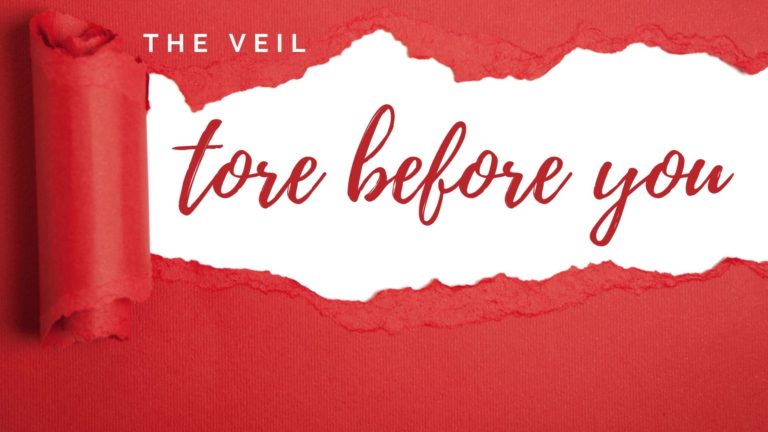There is possibly nothing I love more than a hot cup of coffee first thing in the morning. Put me on my back porch with a cup of coffee, and I am in heaven. Looking at God’s creation, enjoying the chill of the morning air, resting in the stillness, and sipping my favorite drink makes me feel like I’m right where I belong. It’s so peaceful, and for a few moments I am content in the quiet. I might even be tempted to just stay there all day, but unfortunately it doesn’t work that way.
Eventually the cool and comfortable morning temperatures will fade into a less comfortable heat. The quiet of the morning will be replaced with the hustle of traffic and the sounds of busyness. Even the coffee will eventually run out. And most importantly, my children will begin to stir, and I will be faced with responsibility.
In the Old Testament, we read about a woman named Esther. We don’t know why she was orphaned, but we do know she was being cared for by her cousin Mordecai. In a strange series of events, she finds herself chosen to be queen. During her time in this position, the king’s right hand man, Haman develops an evil plan to eliminate the Jews. The king, not knowing his Queen is of Jewish decent, agrees to the plan.
Esther is faced with the dilemma of her lifetime. Does she sit quietly, in the comfort of the palace, enjoying the lavish luxuries of her position? Or does she risk everything—including her life—by abandoning all comforts and facing the king head on for the sake of her people? You and I look at this story, and we say without question she should speak up. She should say something. But, I guess that’s because we know how the story ends.
Mordecai encourages Esther to speak up for God’s people by telling her that perhaps she was made “for such a time as this.”
I can’t help but think that you and I are modern day Esthers. We enjoy the comforts of our homes and the privilege of safety and security. We could choose to stay here. To sit on our porch with our cup of coffee, and ignore the responsibilities of the world around us. But remember? It doesn’t work that way.
In the world around us, there are people who are image bearers of our great God, who continuing to face persecution for the color of their skin.
There are families teaching their boys extra precautions so that they don’t end up on the news as another fatality of an unfortunate incident gone terribly wrong.
There are people who are a part of God’s family who continue to face inequality based on the color of their skin.
I used to sit where you may be. I used to think I don’t have “white privilege.” I thought these things because I worked for everything I have, and nothing was handed to me. I couldn’t relate to the word “privilege.” Recently I realized that this is not the meaning of white privilege.
I am given the assumption of innocence unless proven guilty. This is white privilege.
My husband can walk down the street unsuspecting. This is white privilege.
My husband is less likely to be followed, interrogated, or searched by law enforcement. This is white privilege. The personal faults or missteps of white people will likely not be used to later deny opportunities or compassion to me just because we share the same racial identity. This is white privilege.
“This privilege is invisible to many white people because it seems reasonable that a person should be extended compassion as they move through the world. It seems logical that a person should have the chance to prove themselves individually before they are judged. It’s supposedly an American ideal.
But it’s a privilege often not granted to people of color—with dire consequences.” –Cory Collins
It is uncomfortable to take the first step towards standing up for what is right. But white privilege means that we have a choice whether or not we will fight for equality, while our black brothers and sisters are left with no choice but to continue in the fight with or without us.
It is time for us to accept our responsibility as God’s people to risk our own comfort and start doing the work to end racism.
1 Corinthians 10:5 says, “We demolish arguments and every pretension that sets itself up against the knowledge of God, and we take captive every thought to make it obedient to Christ.” This is the first step. Recognize your own thoughts and predispositions. Let’s take our thoughts about other people captive and make them obedient to Christ.
Like Esther, let’s start risking our unearned benefits in order to benefit others. This means when you see someone being treated differently based on the color of their skin, say something. When people of color enter your place of worship, go out of your way to make them feel seen and welcomed. Maybe even just start with a smile when you see someone on the street who looks different than you. Small steps in the right direction can make a big difference.
We weren’t created to remain in our comfort zone forever. Like Esther, you and I were created for such a time as this.
Learn more about this topic here.







Awesome! Love this blog….and the story session of THE BOOK OF ESTHER!!!